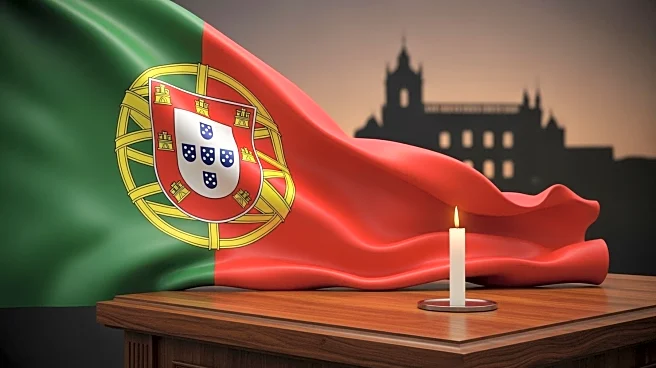What's Happening?
Francisco Pinto Balsemão, who served as Portugal's Prime Minister during a challenging post-coup period, has died at the age of 88. Pinto Balsemão was a key figure in Portugal's political landscape, having co-founded the Social Democratic Party and served as a Cabinet
minister before becoming Prime Minister in 1981. His tenure was marked by political instability following the 1974 Carnation Revolution, which ended Portugal's dictatorship. Despite facing criticism and challenges within his party and coalition, he implemented significant constitutional reforms in 1982, aimed at reducing centralized government control and allowing re-privatization of nationalized companies. After resigning in 1983, Pinto Balsemão focused on building a media empire, founding the influential newspaper Expresso and launching Portugal's first private television channel, S.I.C.
Why It's Important?
Pinto Balsemão's contributions to Portugal's political and media landscapes have had lasting impacts. His constitutional reforms helped transition Portugal towards a more liberal economy, paving the way for its entry into the European Economic Community, now the European Union, in 1986. His media ventures, particularly Expresso and S.I.C., played crucial roles in promoting freedom of expression and informing the public during and after the dictatorship. His legacy in media continues to influence Portugal's press freedom and democratic values. His passing marks the end of an era for Portugal, as he was considered one of the country's most significant figures over the past six decades.
What's Next?
While Pinto Balsemão's death marks a significant moment in Portugal's history, his media empire, Impresa, continues to operate, maintaining his vision of freedom of expression. The Portuguese government and media industry may reflect on his contributions and the evolution of media and politics in the country. His passing may also prompt discussions on the future of media freedom and political reform in Portugal, as well as the ongoing influence of his initiatives.
Beyond the Headlines
Pinto Balsemão's life and career highlight the complex interplay between politics and media in shaping democratic societies. His efforts to promote freedom of expression and liberal economic policies reflect broader themes of political reform and media influence in post-dictatorial contexts. His legacy may inspire future leaders and media professionals to continue advocating for transparency, democracy, and freedom of information.















